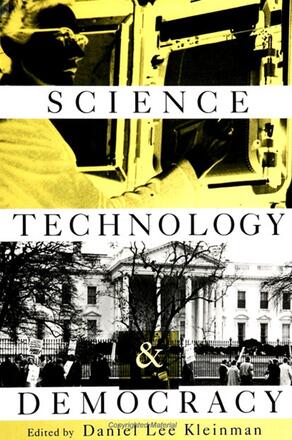
Science, Technology, and Democracy
Alternative formats available from:
Examines restrictions and potentialities for public access to science and technology decision making.
Description
Activists, scientists, and scholars in the social sciences and humanities explore in productive dialogue what it means to democratize science and technology. The contributors consider what role lay people can have in a realm traditionally restricted to experts, and examine the socio-economic and ideological barriers to creating a science oriented more toward human needs. Included are several case studies of efforts to expand the role of citizens—including discussions of AIDS treatment activism, technology consensus conferences in Europe and the United States, the regulation of nuclear materials processing and disposal, and farmer networks in sustainable agriculture—and examinations of how the Enlightenment premises of modern science constrain its field of vision. Other chapters suggest how citizens can interpret differing opinions within scientific communities on issues of clear public relevance.
Contributors include Steven Epstein, Sandra Harding, Neva Hassanein, Louise Kaplan, Daniel Lee Kleinman, Daniel Sarewitz, Stephen H. Schneider, and Richard E. Sclove.
Daniel Lee Kleinman, currently Associate Professor of Rural Sociology at the University of Wisconsin-Madison, was formerly Associate Professor of Sociology in the School of History, Technology, and Society at Georgia Institute of Technology. He is the author of Politics on the Endless Frontier: Postwar Research Policy in the United States.
Reviews
"…how citizens can become better informed about the science and technology that affects their lives, and take positive action and make intelligent choices about those issues in ways that improve lives, the health of communities, and the fabric of democracy. " — Tech Directions
"The recent mobilization of citizen protest against the World Trade Organization suggests a revival of demands for citizen participation in complex technical decisions, so this volume is timely. Its contributors skillfully address the power of expertise, the problems of dealing with scientific complexities, and the dilemmas of citizenship in an increasingly technical world. Their case studies of various models of citizen participation are especially useful. " — Dorothy Nelkin, New York University, coauthor of The DNA Mystique: The Gene as a Cultural Icon and author of Selling Science: How the Press Covers Science and Technology
"This stimulating collection of essays raises one of the most challenging issues of the twenty-first century: Is the meritocracy of science compatible with social democracy? The answer to this question will determine whether people become slaves to technology or truly govern its use. " — Sheldon Krimsky, Tufts University, author of Hormonal Chaos: The Scientific and Social Origins of the Environmental Endocrine Hypothesis
"Can lay citizens participate in science and technology policymaking? As these essays make clear, there is more room for such participation than generally recognized. The book is an important contribution to this increasingly contentious issue. " — Frank Fischer, Rutgers University, author of Technocracy and the Politics of Expertise